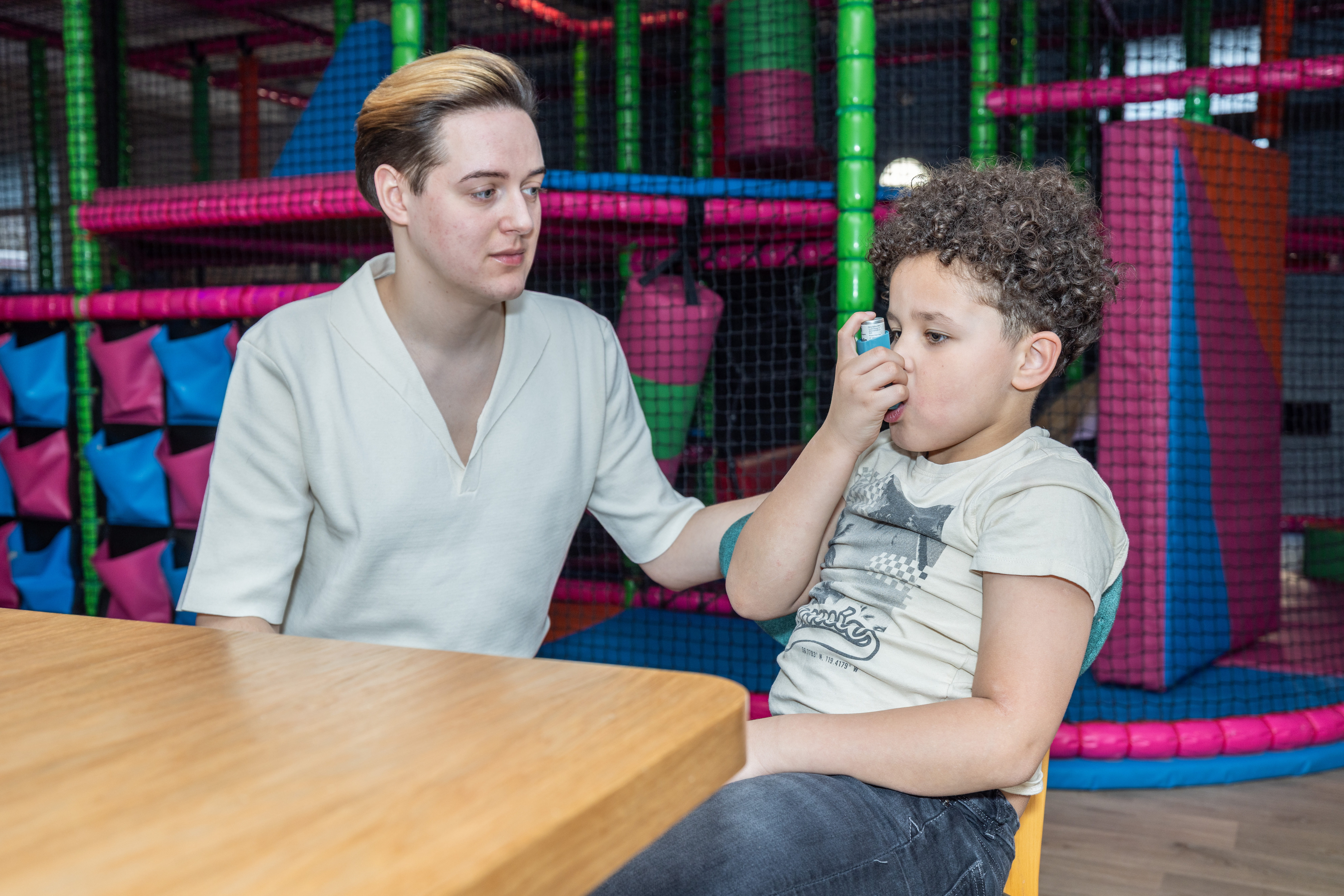
British Red Cross: First Aid for an Asthma Attack
An asthma attack can be frightening for both children and caregivers, which is why preparation is key. As each child’s asthma is different, it helps if you are aware of what triggers asthma for the children in your setting. A child who has asthma will normally have an inhaler that their doctor has prescribed. They may also have a spacer, which makes the inhaler more effective.
How can I tell if a child is having an asthma attack?
A child with asthma may be able to let you know if they are having an attack. A child experiencing an asthma attack may struggle to breathe or speak, often coughing and wheezing. As they fight for air, they can become extremely anxious and distressed.
In some cases, their lips, earlobes and nail beds may turn greyish-blue because there isn’t enough oxygen in their body.
Steps to take
1. Help them to sit in a comfortable position and take their inhaler (1-2 puffs every 30-60 seconds, up to 10 puffs). If they have a personal asthma plan, they should follow this, and you should seek medical advice if necessary.
2. Stay with them and reassure them until they are completely recovered.
Call 999 if you have any concerns, such as they:
• are having their first attack
• are finding it difficult to talk or make noise
• are becoming exhausted
• aren’t helped by their inhaler
• don’t have any asthma medication with them
• get worse, become unresponsive or stop breathing.
Paediatric first aid training
Our two-day EYFS compliant first aid course is ideal for people who work with young children, such as nursery staff or childminders. Book online today!
Don't forget, if you're a Morton Michel policyholder you can get 10% discount on the British Red Cross' paediatric training courses through our exclusive ChildCare Club. Find out more here.
Please note, the information in this article is provided by the British Red Cross and does not represent the views or opinions of Morton Michel.